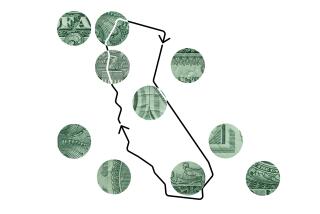Campaign finance legislation faces tricky issue of foreign corporations
Reporting from Washington — Proposed legislation to block foreign companies from contributing money to U.S. elections could end up affecting well-known companies such as Chrysler, Anheuser-Busch and Citgo, according to legal experts and company representatives.
The legislation is a reaction from key House and Senate Democrats to a Supreme Court decision in January that struck down a portion of the nation’s campaign funding laws, allowing corporations to freely contribute to political campaigns.
The high court’s 5-4 decision in Citizens United vs. Federal Election Commission seemed to open the way for U.S. subsidiaries of foreign corporations to also contribute to campaigns.
The legislators say they are now considering a broad definition of foreign corporations -- companies that are more than 20% owned by non-American entities. That could end up banning thousands of corporations from contributing to political activities.
Chrysler would be affected because the Italian automaker Fiat has a 35% stake. The oil company Citgo Petroleum Corp. was started by an American oilman but has been wholly owned by the Venezuelan state-owned petroleum company since 1990. St. Louis-based Anheuser-Busch, the company that brews Budweiser, was bought by Belgian brewing giant InBev for $54.8 billion in 2008.
U.S. subsidiaries of foreign corporations are concerned about the legislation being prepared by Sen. Charles E. Schumer (D-N.Y.) and Rep. Chris Van Hollen (D-Md.), saying it could unfairly label them as foreign entities, changing their status on matters that go beyond politics.
For example, the companies worry that they could be excluded from bidding on certain U.S. government contracts.
The Schumer-Van Hollen legislation, expected to be introduced in the coming week, follows President Obama’s criticism of the Supreme Court decision in his State of the Union speech. Obama said the ruling would “open the floodgates for special interests -- including foreign corporations -- to spend without limit in our elections.”
But Jan Baran, a campaign finance expert, said that figuring out “who is foreign and what makes them foreign is not all that cut and dry.”
Trevor Potter, a former commissioner and chairman of the Federal Election Commission, agreed. “Stocks are sold on the stock exchange and owned by a variety of stakeholders,” he said. “It’s going to be quite difficult, for instance, to determine actual foreign ownership if a mutual fund has a stake in a company.”
Van Hollen said his legislative team is “still reviewing the foreign influence issue.”
But he added that it was important to prevent foreign influence on domestic politics. “We must ultimately ensure that Americans decide our elections, not foreign special interests,” he said.
More to Read
Sign up for Essential California
The most important California stories and recommendations in your inbox every morning.
You may occasionally receive promotional content from the Los Angeles Times.










